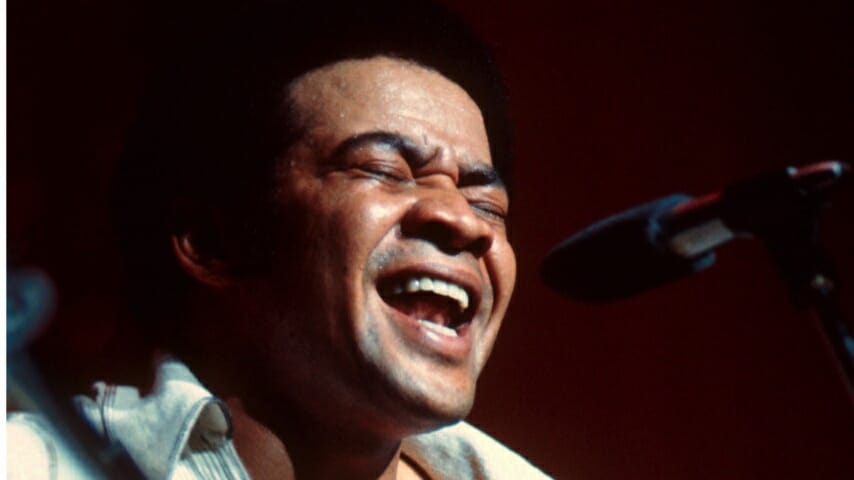Bill Withers: The Poet Laureate of Rural Afro-America
Photo by Michael Putland/Getty
Bill Withers, who died last week at age 81 of heart problems, would have been a great songwriter no matter where or how he grew up. He worked so hard at carving out catchy melodies and chorus aphorisms that they would have resonated with listeners in any case. To merely read the titles of his most famous songs—“Lean on Me,” “Ain’t No Sunshine,” “Just the Two of Us,” “Grandma’s Hands” and “Use Me”—is to hear their familiar tunes. His words and music were wound together that tightly.
But what gave Withers’ music its distinctive flavor was his background. The 20th century had many brilliant songwriters who were raised black and urban, white and rural or white and urban, but Withers was one of very few who were raised black and rural. He grew up in Beckley, West Virginia, and it was there he learned the cadences and vocabulary of African-American blues and gospel, and it was there he learned the value of mountain songs that didn’t need more than one guitar and one voice to get over.
“People think all black people are street guys,” he told me in 1990, “but you can’t be a street guy if there aren’t any streets. I grew up in a small town, and all we had were roads. I’m a rural guy, so what comes out of me is rural. Nothing can come out of us that isn’t in us already, and what comes out in my songs is the simplicity I gained from my childhood. Even when my own language had become more sophisticated, I still wrote in the simple dialect of home in songs like `Ain’t No Sunshine’ and `Grandma’s Hands.’ Some of my best songs had a very simple subject like `Lean on Me.’”
His daddy was a coal miner, but the son wanted to stay out of the mines, so he enlisted in the Navy. That put him in touch with a wider world and a broader range of possibilities. After nine years in the service, he landed in Los Angeles and worked on his demos at night after his day job at Douglas Aircraft. His first album, Just as I Am, produced by Booker T. Jones, was released in 1971 and yielded the singles “Ain’t No Sunshine” and “Grandma’s Hands.”
“Ain’t No Sunshine,” which declared, “It’s not warm when she’s away,” was the inverse of Smokey Robinson’s “My Girl,” which announced, “I’ve got sunshine on a cloudy day.” These two songwriters spearheaded a golden era of poetic soul music in the ’60s and ’70s, leading the way for fellow lyricists such as Curtis Mayfield, Sly Stone, Earl King, Oscar Brown Jr., Don Bryant and Marvin Gaye. It was an era when the audience’s hunger for lyrics with substance met a generation of wordsmiths willing to supply the nutrition.
“That was a time when people wanted to hear poetry in their songs,” Withers told me. “Now people want to hear rhythm. That’s alright; people have a right to demand whatever they want for their entertainment…. Songwriters are like high jumpers; they only jump as high as they have to. If the standards for poetry in songs are set at three feet, that’s all the higher they’ll jump. Consumers haven’t required anything more from their entertainers, so that’s what they get. That’s alright—poetry doesn’t go away; it just plays for a smaller number of people.”
To get that eloquence into popular song, you have to work at it. And Withers did. He kept refining his demos by changing a few notes or words with every take, whittling the numbers down to their essence.
“I work on something,” he added, “until I can see it when I hear it. I like to say things so you get a picture in your mind. Everyone has a cut-off point that lets them know when they’ve finished a song. When I can see something, that’s when I put down my pencil and go watch ESPN.”
-

-

-

-

-

-

-

-

-

-

-

-

-

-

-

-

-

-

-

-

-

-

-

-

-

-

-

-

-

-

-

-

-

-

-

-

-

-

-

-








































